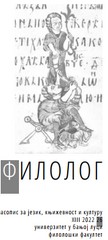AN ECOCRITICAL READING OF THOMAS HARDY’S JUDE THE OBSCURE
AN ECOCRITICAL READING OF THOMAS HARDY’S JUDE THE OBSCURE
Author(s): Nataša V. NinčetovićSubject(s): Ethics / Practical Philosophy, Human Ecology, Theory of Literature, British Literature
Published by: Филолошки факултет Универзитета у Бањој Луци
Keywords: ecology; anthropocentrism; Hardy; social Darwinism; biophilia;
Summary/Abstract: Jude the Obscure (1895) is traditionally interpreted as Thomas Hardy’s bleakest and most pessimistic novel. From the perspective of ecocriticism, it may be viewed as the author’s endeavour to challenge the dominant anthropocentric attitude of the nineteenth century. Relying on Darwin’s theory of the common origin of species, Hardy believed that people should recognise their connectedness and dependence on the whole living world. The novel implies that man should abandon his self-centeredness and embrace other perspectives. This, however, does not mean that Hardy does not see people as valuable and important. In a world where religion loses its power we should rely on other people. The implication of Jude the Obscure is that the way we treat each other is linked to the way we treat nature. Hardy’s pessimism is the consequence of his realisation that ideas of Darwin were manipulated and (mal)adjusted to society. The character of Jude Fawley is doomed to tragedy due to his hypersensitivity, which is incorrectly perceived as a flaw in the society which promotes autonomy and separateness instead of connectedness and mutual dependence.
Journal: Филолог – часопис за језик, књижевност и културу
- Issue Year: 13/2022
- Issue No: 26
- Page Range: 357-369
- Page Count: 13
- Language: English

